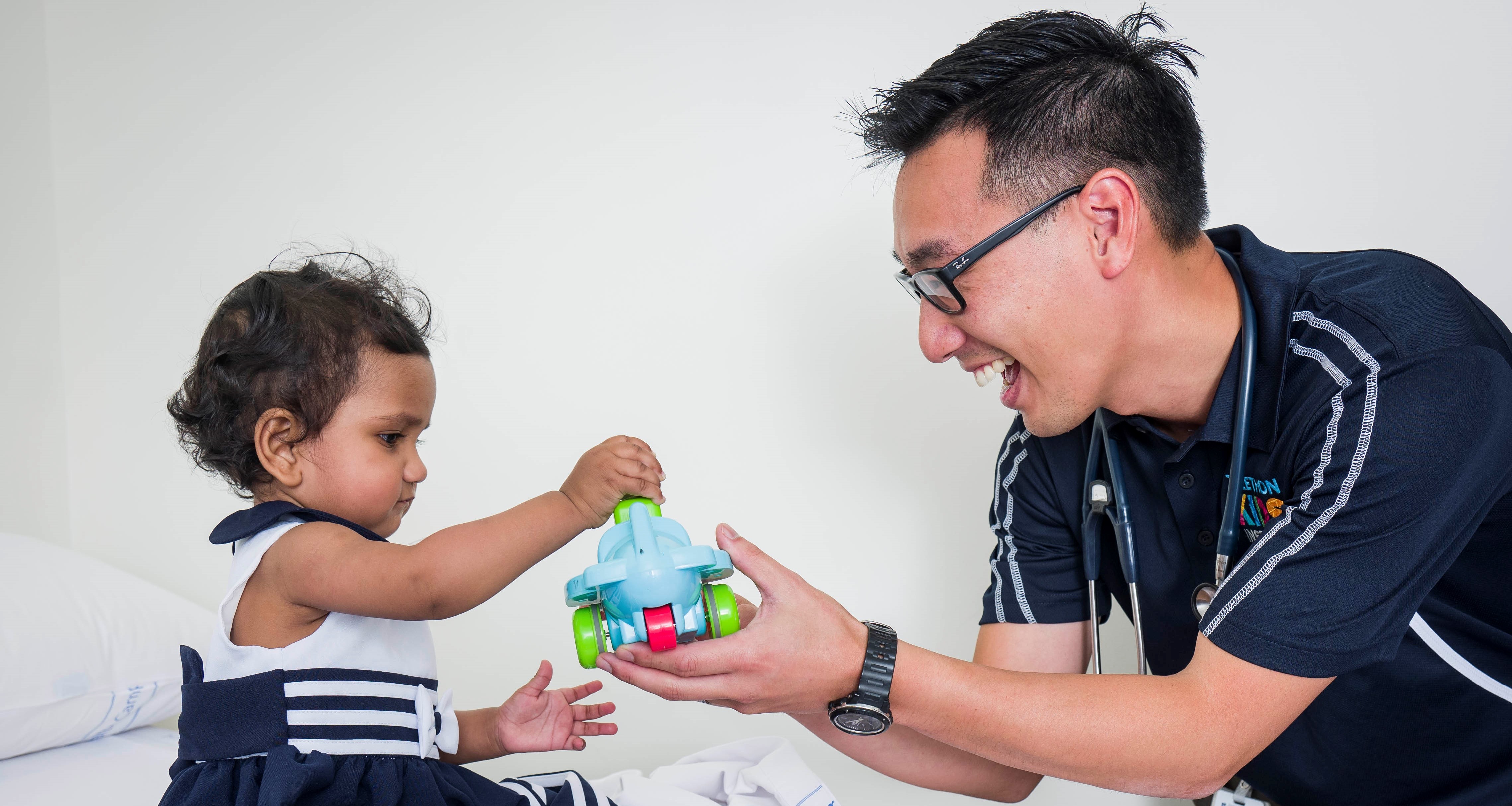
Dr Jamie Tan with ORIGINS participant
The ORIGINS Project, a collaboration between Telethon Kids and Joondalup Health Campus, is collecting data and biological samples from 10,000 families over 10 years to create one of the largest data and biobanks in Australia. Its work is also giving participating families a valuable heads up on health issues, including severe allergies, delayed speech and physical development, and anxiety and depression in mums.
A decision to include a critical element in the ground-breaking ORIGINS Project is helping to identify health issues among participating babies, toddlers and parents – leading to specialist referrals and enabling early intervention.
Although ORIGINS is not an intervention study, Co-Directors Professor Desiree Silva and Professor Susan Prescott decided to incorporate ‘real-time feedback’ into the protocol – essentially allowing researchers to let participants know as soon as a health issue is identified.
“As well as enabling strategic long-term research capacity, ORIGINS is a responsive system for parents and their children, with translation to clinical and diagnostic services,” paediatrician Professor Silva said.
ORIGINS participants complete Ages and Stages questionnaires and send in urine, stool, cheek swab and saliva samples at regular intervals throughout their child’s first year, with the material periodically reviewed by a consultant paediatrician. The questionnaires and sample drop-offs then continue every 6–12 months until the child is five years old. Face-to-face assessments are also conducted as part of the project, at one, three and five years of age.
The online questionnaires include questions about the child's diet, health, environment and developmental milestones, as well as information about the parents’ lifestyle, environment and health.
Consultant paediatrician Dr Jamie Tan has been part of The ORIGINS Project since its inception in 2017.
“If the baby or child is below the screening cut-off for their developmental assessment, we will contact the family and recommend they come in and see me or their own paediatrician,” Dr Tan said. “If it’s only a mild concern, we’ll still let them know to get it checked out by their GP or child health nurse.
“We’ve identified many issues over the three years the study has been running. A common one is iron deficiency – you’d be surprised how many kids are low in iron. In fact, at the three-year appointment conducted as part of The ORIGINS Project, iron studies are now routinely sent off to enable some real-time feedback.”
The team has also identified severe allergies, eczema, undiagnosed hip dysplasia, and psychosocial and developmental delays in ORIGINS kids, referring them to appropriate services including GPs, specialists and allied health or community support services.
“Sometimes parents will actually contact ORIGINS about concerns they have about their child,” Dr Tan said.
“Subsequently the ORIGINS staff member will contact me or one of the other consultant paediatricians for follow up with the family.”
Professor Silva said every child within the ORIGINS Project received real-time feedback.
“To date, 48 per cent of babies at their one-year check have had an issue identified and a management plan provided,” she said. “The children definitely benefit from the early intervention, as so many issues can be addressed if a medical team gets onto them quickly.”